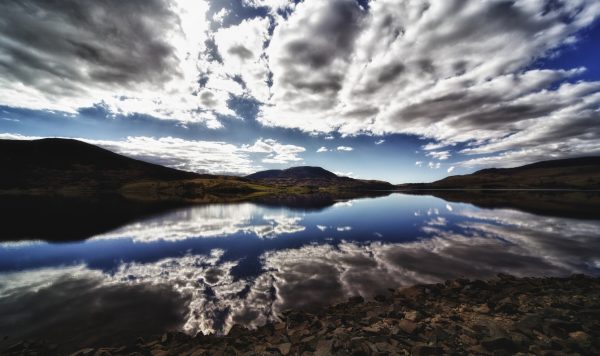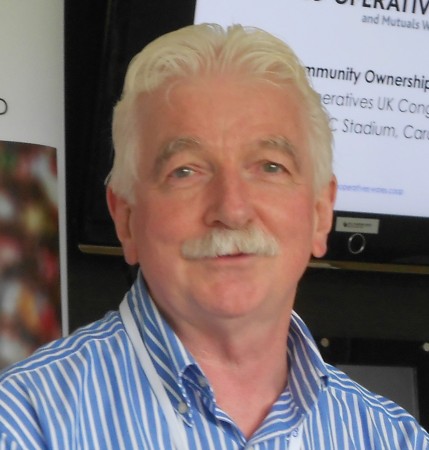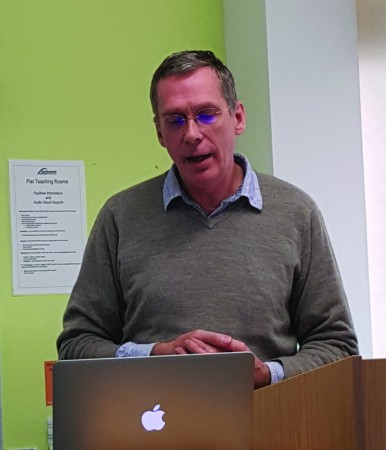Water regulator OFWAT has backed plans to bring competition to the residential retail water market – which could give co-ops the chance to enter the market.
In April next year, all businesses and charities in England will be able to choose who they buy their water from. That choice is likely to extend to the residential sector now OFWAT has made its recommendations to the government.
According to a report, the move, which would end the final retail monopoly, could be worth almost £3bn to the consumer with smaller bills and improved customer service.
Customer research suggests that 56% of people think having choice would be a good thing and – with most UK water companies in private hands – could it also be an opportunity for the co-op movement?
An OFWAT spokesperson told Co-operative News the plans could “offer great potential to all business models including social enterprises as part of an effective and vibrant market which the government asked us to look into”.
But not everyone is convinced.
Welsh Water – Dwr Cymru – is a semi-mutual water company run on a not-for-profit basis, owned by Glas Cymru, a single purpose company with no shareholders run solely for the benefit of customers.
How should co-op banks deal with the negative rates dilemma?
It was set up in 2001 and financed via a bond issue of £1.9bn – one of the largest ever in the UK. Under Glas Cymru, its assets and capital investment are financed by bonds and retained financial surpluses.
Efficiency savings to date have largely been used to build up reserves to insulate Welsh Water and its customers from any unexpected costs and to improve credit quality so that Welsh Water’s cost of finance can be kept as low as possible in the years ahead.

Long-serving co-operator Alex Bird, one of its 43 members, became involved after advising a cross-party group in Northern Ireland (where water has historically been provided free of charge) on the business model.
“We are a company limited by guarantee so membership is not open to every consumer,” he said. “We have 43 members who hold the board of directors to account and, though recruitment is done in a conventional way, we meet several times a year and carry out technical visits to sites.”
But Mr Bird, a director of Co-operatives UK and chair of the Development Co-operatives consortium in Wales, warns there are as many threats as opportunities if Wales goes down the deregulation path.
“If the liberalisation comes across to Wales, other water companies can come into the Welsh market,” he said, “and we would be able to move across to England and take the opportunity to do more water-related things which could be ploughed back into the not-for-profit company.
“However it is regarded as quite a threat as well as an opportunity. When Welsh Water was formed over 15 years ago, it was done with a lot of knowledge and support from the community. It was bought off a private operator and badly needed investment.

“Wales is no longer the most expensive water in the UK as it was then. We were pretty much at the bottom for water quality but we have seen big improvements in things like sewage treatment and the quality of our beaches. There has been massive investment in new plants and in real terms water charges are coming down.”
Currently, he says, the favoured strategy is to lobby the Welsh government to stop the market changes coming in.
“We would like to keep the status quo,” he added, “but the complication is that part of Wales is run by English water companies and Welsh Water supplies places like Hereford and Gloucester so we are partly regulated and partly liberated.
“They are trying to pull off the same trick with water as with electricity and gas but it is the same water whoever you buy it from so I am not sure the model would work.
“Welsh Water is now the only British-owned utility and there has been significant improvement in service and engineering with no external shareholders and no loss of surplus.”
OFWAT’s modelling of potential costs and benefits identifies possible improvements in water efficiency and in reducing bad debt costs, as retailers get better information about customers and their water use.
However, there would be significant costs, which would ultimately fall on companies and customers.
Cliff Mills, principal associate at Mutuo, specialises in corporate governance and constitutional advice in the establishment and running of co-operative, mutual and membership-based organisations.
He believes that opening up the market for the water industry could offer the co-operative sector serious opportunities – opportunities first mooted over 20 years ago.
“In the late 1990s we were approached by an organisation called United Capital which wanted to develop a mutual form of organisation for utilities and believed that the plc model with a statutory regulator would not last very long,” he said.
“Yorkshire Water, then operating as Kelda, was going to mutualise water assets and had the capital. It developed a mutual ownership structure based on domestic and business customers, stripping out anything which was not a core utility asset, like repairs and billing.
“That transaction was stopped by the water regulator who believed the community were paying too much at that point in time – but the view was this was a credible way forward which did not need to be funded by the stock exchange.”
Mr Mills says the idea was an “attractive proposition” which remained in consideration after Kelda went away.

“What it had revealed was a big question from the co-operative point of view,” he said. “We had developed something which Yorkshire Water were pursuing and knew legally the model was capable of working. What has never happened since is that model being used.”
He thinks OFWAT’s latest statement could offer an opportunity for other forms of mutuals and ownership.
“At the moment the quality of service and cost is so bad from a consumer point of view,” he added. “It is really not a credible offer – so what is the alternative?
“We could open up the current opportunity to go back to that approach we had years ago. There is a big debate about capital, and how do we attract capital for co-ops, and which business should they be in.
“If retirement savings are poured into a better future for utilities owned in a mutual way that would be a very logical place to be.
“If one imagines basic infrastructure and assets owned in a way which is more responsive to public interest – it becomes a dialogue between customers and owners. On issues like flood prevention measures the community could take ownership of the problem.”
Mr Mills says he is now writing a wide-ranging paper on capital and how businesses use money.
“At the moment we put all that money into chasing profit. We need businesses to use our capital in the best way they can for a better world and we need mutual organisations designed to attract finance, which are properly accountable.
“The possible ownership of assets in the public interest, like reservoirs and infrastructure for public benefit, is one of the reasons why mutual ownership should be back on the agenda if we are talking about energy and water. Why wouldn’t the community want to have a say?”

